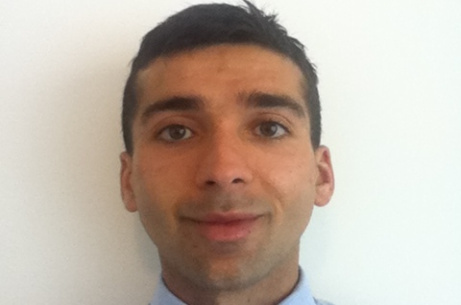
Shamsher Samra will give the first in a series of talks at the University of Miami.
A Gates alumnus who is working on a community-based violence prevention scheme in the US will be the first speaker at an annual series of talks at the University of Miami on major international fellowship programmes in the UK and Ireland.
Shamsher Samra [2007] will talk about his personal experiences as a Gates scholar at the University of Miami on 16th April.
Shamsher, who majored in biological sciences major at Stanford, did an MPhil in Development Studies at the University of Cambridge in 2007 with the support of a Gates Cambridge scholarship.
He applied for the scholarship after realising, following some work in Ghana and India, that to achieve his goal of working in medical care for underserved populations he needed to more fully understand the historical, economic, political and social forces that result in inequity and continuing deaths from preventable diseases.
He says: “It’s hard to overstate how transformative my year as a Gates scholar was. The course work in the Development Studies programme was both rigorous and flexible, allowing me to tailor my studies toward my future goals. My time at Cambridge also provided an opportunity to think critically about how my career plans related to systems that create poverty and inequity.
“Outside of the classroom, being a Gates scholar connected me to an amazing network of individuals who brought inspiring energy from a breadth of fields toward the common goal of promoting social well-being.
“The friendships and conversations born out of this network shaped and continue to add breadth and depth to my own work. It is also just a great group of people and we had a lot of fun ranging from trips around the UK and Europe, to event planning, sports, and just hanging out. The strength of the Gates’ network has allowed for these types of things to continue, even though I am now a few years out from my time at Cambridge.”
After returning to the US, he started medical school at Harvard. He says his experience as a Gates scholar gave him a unique perspective. For instance, during a project working with rural communities in India he was able use his understanding of international water supply policies to publish a paper highlighting how the World Bank’s programme in India was failing to meet the needs of the communities he was working with, resulting in a high prevalence of gastrointestinal illness.
Shamsher is now working on a community based violence prevention initiative run by San Francisco General Hospital. He says he continues to find the knowledge and personal contacts gained from his time at Cambridge “invaluable” in his community organising and policy work.
He adds: “I am planning on pursuing a career that balances global health work with development work and I am sure that my time as a Gates Scholar will continue to serve me well.”












